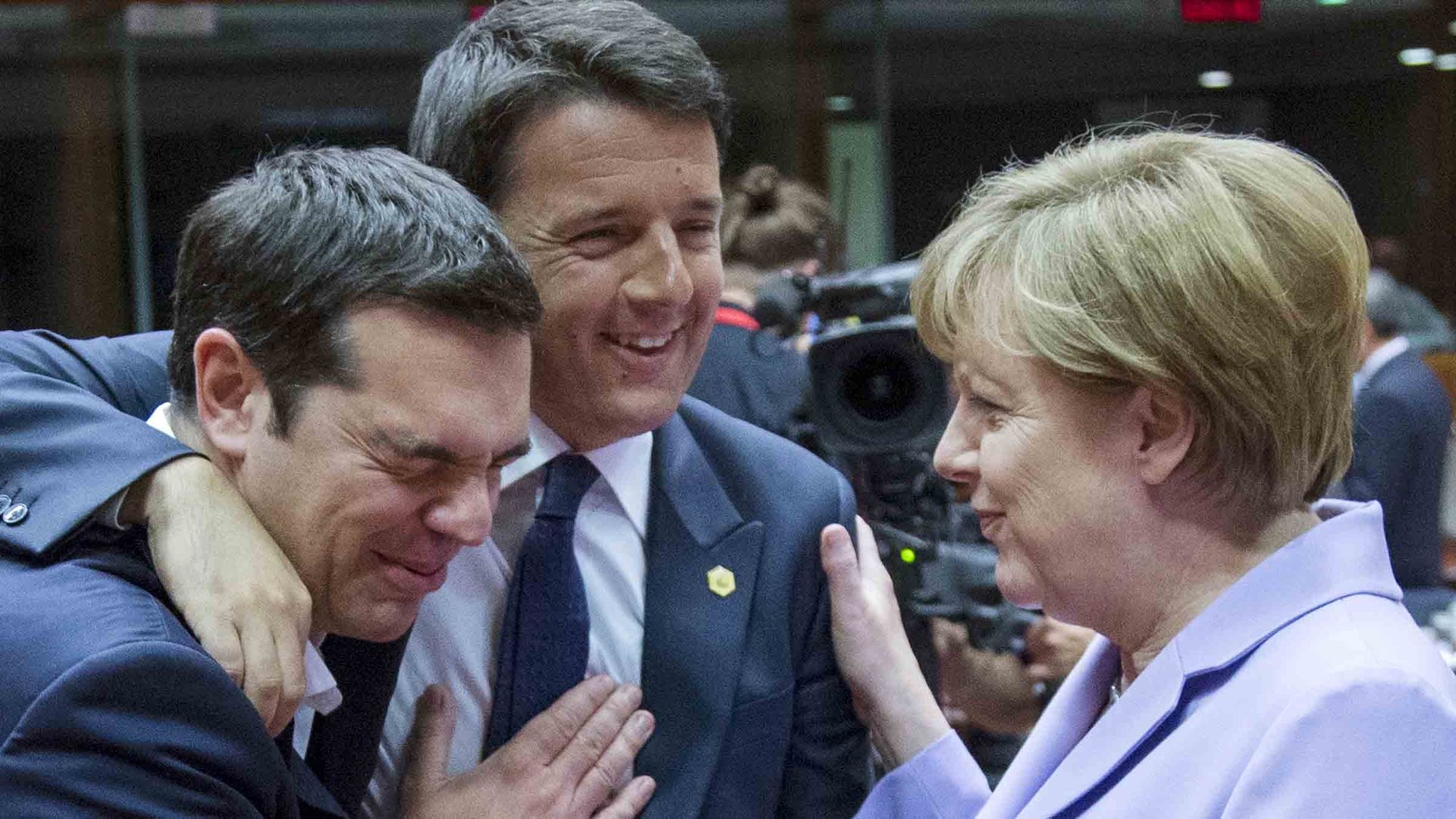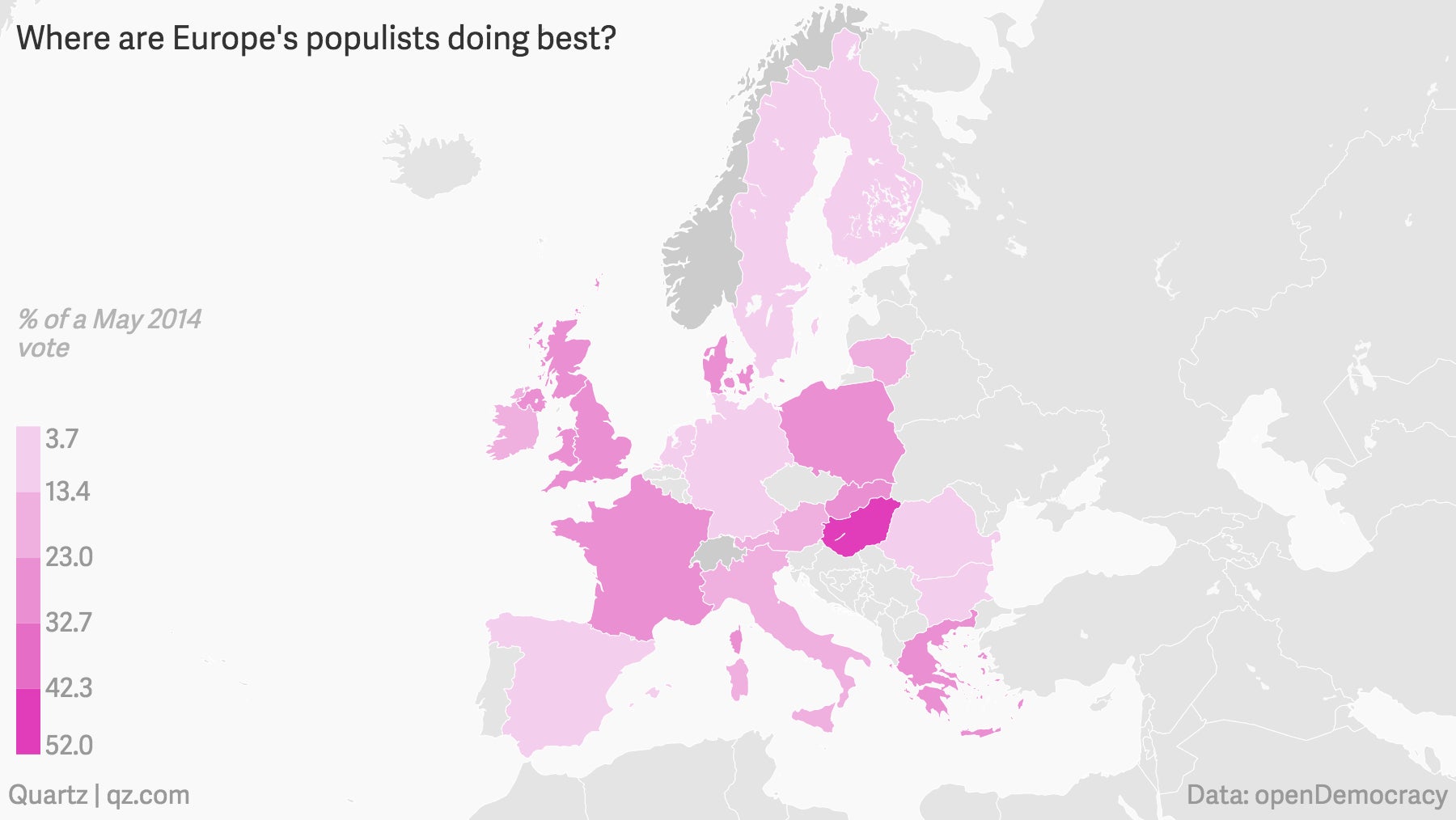Italy’s Matteo Renzi says a German-led Europe is pushing voters to the fringe
Matteo Renzi is annoyed.


Matteo Renzi is annoyed.
The Italian prime minister told the Financial Times (paywall) that the euro zone’s insistence on austerity is fanning the flames of populism across Europe.
“It happened in Warsaw, though the circumstances were very particular there, it happened in Athens, it happened in Lisbon,” Renzi told the newspaper. “Let’s see what happens in Madrid,” he added, referring to Spain’s recent general election in which voters ditched the political center.
It’s not hard to see where Renzi is coming from. Voters across Europe are proving increasingly disillusioned with centrist parties; the Greeks have—several times over—voted for populist left-wing party Syriza, voters in Poland have put the euro-sceptic (and some say potentially destabilizing) Law and Justice party in power, while right-wing movements have gained strength, in varying degrees, from Hungary to Sweden.

This is not the first time Renzi has taken a shot at the European Union. But aiming his criticism directly at Germany, its chancellor Angela Merkel, and the country’s influence on the management of the EU, is a step up from earlier complaints directed at Brussels. “I have esteem for Angela, we have an excellent personal relationship,” Renzi told the newspaper. “But we have to be frank… Europe has to serve all 28 countries, not just one.”
Later this week, Renzi’s government will unveil a budget for 2016 that is expected to reduce taxes but not to cut public spending too heavily. That likely won’t go down well either in Berlin or Brussels. But he is betting on keeping Italy growing in order to nip in the bud support for Italy’s own populist challenger, the 5-Star Movement.
“I am not fighting against Europe, as some commentators have written. I am fighting for Europe, but a social Europe which supports culture, innovation and employment,” Renzi wrote in a note to party supporters. “Not a Europe of only numbers, parameters and constraints.”